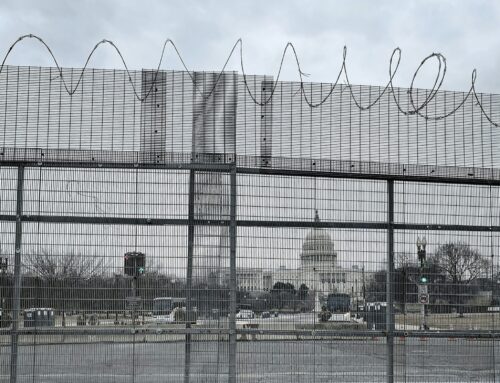Washington’s in the thick of its summer spending season. You can be forgiven if it feels like we just finished the painful process of writing the checks to fund the federal government, because we did. Just two months ago, work on the 2011 spending plan finally wrapped up—seven months after the fiscal year began. If Congress is going to avoid such a sad repeat performance, they better pick up the pace, particularly in the Senate.
The House Appropriations Committee has been steadily churning out bills, and the full House has passed three of the twelve annual spending bills: Homeland Security, Military Construction/Veterans Affairs, and Agriculture. And looking at these we get a glimpse into how Congress is moving forward in this brave new world of no earmarks and trillion dollar deficits.
Wisely, MilCon/VA , which was typically not laden with Congressional earmarks, appears to still be rather clean. And the heavily earmarked accounts in the Homeland Security bill are stripped bare, while receiving reduced funding levels and directions to better justify the expenditures from the accounts.
But, there are a few signs Congress is still feeling its way in the post-earmark world.
In the Agriculture spending bill , the typically highly earmarked accounts were similarly raided, although there were a few references to earlier earmarks. One example being an encouragement from Congress to the Animal and Plant Health Inspection Service (APHIS) to spend “above the President’s budget request” on combating the potato cyst nematode, which had previously benefited from Appropriations Committee member Rep. Simpson’s (R-ID) earmarks. Or, noting that “blueberries and cranberries [are] vital to many local economies” while encouraging agency support for the “development of new cultivars to enhance economic stability and develop environmentally sound insect and disease management strategies and technologies.” There were several earmarks in early years for blueberry and cranberry research that were supported by a variety of lawmakers including Agriculture Appropriations Subcommittee Chairman Kingston (R-GA) and member Rep. Bishop (D-GA).
These are not earmarks – certainly not in the traditional sense, and the Committee deserves credit for pushing for more accountability and justification of spending decisions from the Executive Branch. But at the same time, these Congressional directives deserve to be scrutinized and it will be interesting to see if these sway the agency when they are deciding how to spend our tax dollars.
The House also has two more bills that have passed committee but not yet made it to the floor. These are the previously heavily earmarked Energy & Water and Defense spending bills. So far both are looking remarkably clean, although Defense spending was not only spared the budget axe, but is getting a more than three percent increase in funding levels while everything else saw a cut.
On the other side of the Capitol, the Senate Budget Committee majority has deferred on drafting a budget. Chairman Conrad (D-ND) justified this decision “because of the high-level bipartisan leadership [budget cut] negotiations” and that the Senate’s budget will incorporate and implement the recommendations that come out of the agreement. Vice President Biden has indicated an agreement won’t come out until July 1st, at the earliest.
This delay puts the Senate Appropriations Committee – which has always lagged the House no matter who is in charge – in a tough spot. They have been holding hearings on the various agency budgets but they have yet to draft a single spending bill. Considering they are gone for a whole month in August and September, they only have two and half months to draft, debate, pass, and conference twelve spending bills. Good luck.
While we’re unlikely to see an exact repeat of last year’s budget debacle, it is clear taxpayers will yet again ring in the new fiscal year with much of the government operating under a stopgap spending measure. As the wrangling over spending cuts and increasing the debt ceiling continues, Congress and the Administration need to find ways to fix the broken budget process and make government work.
###
TCS Quote of the Week:
“I think the days of large subsidies like this are really over, and this is kind of the first vote on it. I think you’re going to see all kinds of subsidies go, because we’ve got so many problems.”
– Sen. Dianne Feinstein (D-Calif.), who sponsored the VEETC repeal amendment with Sen. Tom Coburn (R-Okla.). Politico










